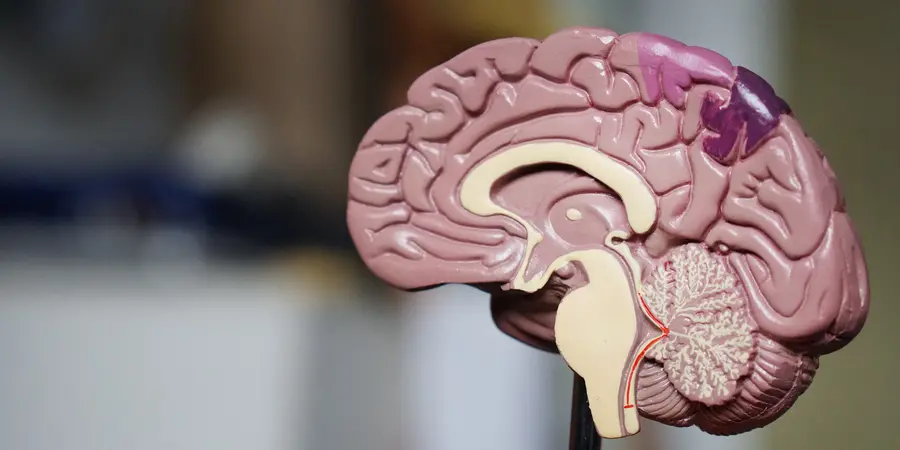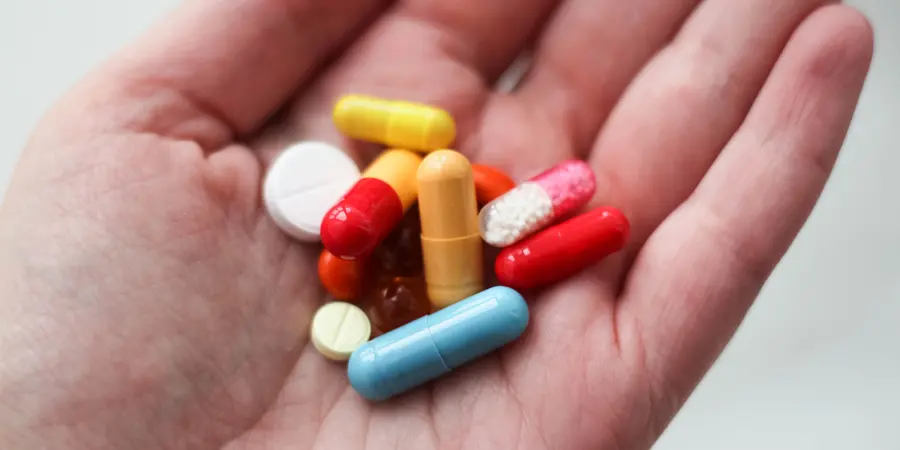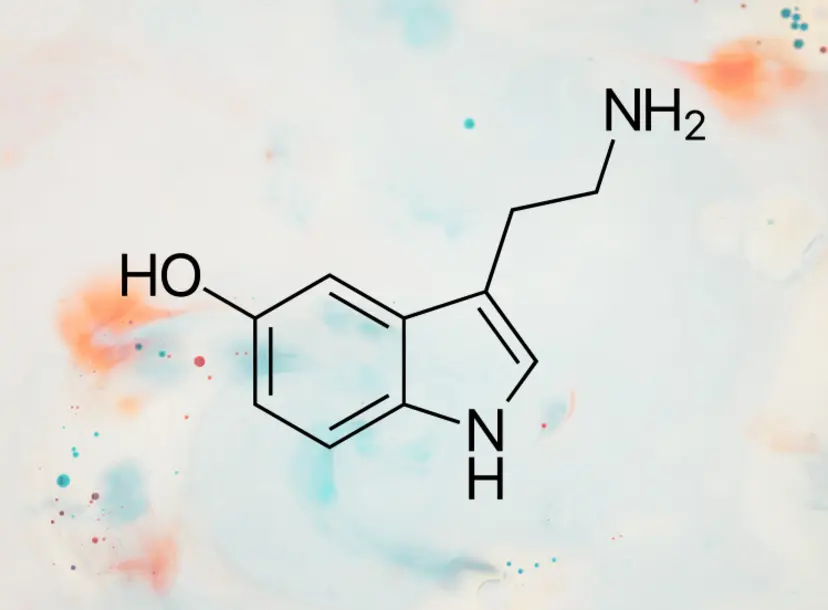Often described as a ‘feel-good’ chemical, serotonin does so much more for us than we give it credit for.
Serotonin is a neurotransmitter—a small chemical hormone in the brain which is used to pass information between our brain cells. It is also known by names that don't roll off the tongue as easily, like 5-hydroxytryptamine or 5-HT.
Even though we commonly associate neurotransmitters with the brain, serotonin is mainly made by your gut, and has multiple functions throughout your entire body—many of which are key to our survival.
What does serotonin do to your brain?
Serotonin is probably best known for making us feel good: it’s the hormone that regulates our anxiety and helps us have a positive outlook on life.
It is found throughout the brain, so it isn’t surprising that it has many other effects. For example, it helps regulate our sleep-wake cycle in weird and wacky ways. Some studies show that high serotonin levels are linked to better sleep quality—specifically, serotonin helps keep you asleep once you’re there—while others suggest that this neurotransmitter actually stops you from falling asleep when you’re awake!
This dual function is actually really common with brain chemicals, since it isn’t the type of neurotransmitter alone that decides the effect. The receptors (molecules which process how much serotonin is coming in) are really what determines the downstream effects.
So, different serotonin receptors in different brain cells allow it to have many (sometimes disagreeing) effects—like helping you sleep while also keeping you awake!

Serotonin in the body
Your digestive system also uses serotonin. Actually, your gut, and not your brain, is where most of the serotonin in your body can be found. There, it has the key job of helping to regulate your bowel movements and protecting you from any ingested toxins. If your body detects that you’ve eaten something bad, serotonin levels increase in order to help you get rid of it faster.
Your blood also contains serotonin, and uses it for blood clotting. The cells responsible for creating blood clots when you’re injured (platelets) can’t make any serotonin themselves. So, they actively absorb it from your bloodstream and store it internally so that they have a good supply ready. The larger your platelets’ supply of serotonin, the faster you clot and the faster you heal!
How to increase serotonin levels
With serotonin being so important to our mental and physical health, many of us would really like to have some more.
One common tool to help improve poor mental health is to take a ‘selective serotonin reuptake inhibitor’, or SSRI. These medications are given on prescription and stop your brain cells from removing serotonin when it’s being used, increasing the levels you have in your system at any given time. These medications are the frontline for diseases like depression, anxiety and are even considered for treating irritable bowel syndrome (IBS).
St John’s wort is a non-prescription alternative as a homeopathic treatment with proven effects on serotonin levels. However, this is still a drug and has some dangerous interactions with other treatments, including antidepressants and hormonal birth control, so be sure to discuss it with your doctor before trying it.

Medications aren’t the only way you can increase your serotonin levels. Since serotonin is produced when an amino acid called tryptophan is digested in the gut, you can increase levels by providing your body with more tryptophan.
This can be found in many foods, including bananas, eggs, walnuts, spinach, soybeans, sesame seeds and more. Tryptophan is also used by your body to make melatonin, another hormone vital to the proper regulation of your sleep-wake cycle.
Serotonin levels can also be boosted through exposure to sunlight (and other white-light therapies). In fact, seasonal affective disorder (or SAD) is believed to be caused by the low levels of sunlight we receive in the UK during the winter months, one of the consequences being reduced serotonin.
Finally, even though we hate to hear it, we need to exercise more if we can. Not only does regular exercise have heaps of physical benefits, but it also increases the release of serotonin into our systems.
Can you have too much serotonin?
So, is there any downside to serotonin? Unfortunately, yes. In biology, there is almost always the possibility of too much of a good thing, and serotonin is no exception.
In the most serious cases, people with too much serotonin in their bodies develop the medical condition serotonin syndrome. The common effects of this are headaches, fever, muscle rigidity, diarrhoea, sweating and confusion. When serotonin syndrome is very severe, usually as a result of illicit drug use, patients need to be hospitalised.
Thankfully, the serotonin 'overdose' is often spotted before it becomes too severe, and medication doses can be changed in order to solve it. As long as it is addressed quickly, symptoms will usually pass over the course of a few days.

The takeaway
Like many things neuroscience, we still have a lot to learn and understand about what serotonin does in our body. However, its role in helping many of us suffering from depression, anxiety and other health conditions is undeniable.
If you think that your quality of life could be improved through changing your serotonin levels, please speak to a medical professional—everyone deserves to have a healthy brain and body.
About the author
Charlotte Collingwood is a neuroscience PhD student who uses computers, maths and a biology background to learn more about how the brain works. She is currently doing a three-month internship with us, sharing her love for all things science. She can be found on Twitter at @NeuroCharlotte
